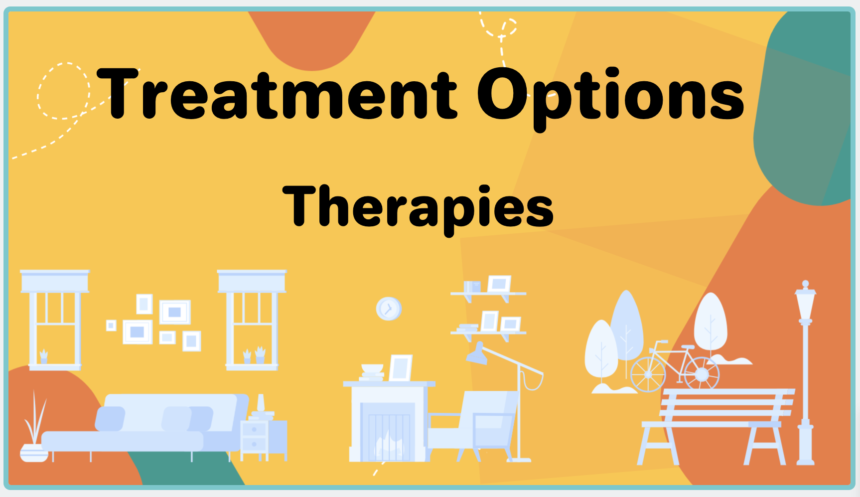For military veterans, selecting an appropriate therapist is a critical decision that can significantly influence their mental health journey. Veterans often face unique challenges that can complicate their emotional well-being. Common issues include post-traumatic stress disorder (PTSD) resulting from combat experiences, difficulties in transitioning to civilian life, and the stigma surrounding mental health treatment. Each of these factors underscores the necessity of finding a therapist who is not only qualified but also understands the specific circumstances that veterans encounter.
The transition from military to civilian life can be particularly daunting for veterans, as it often involves navigating new social dynamics, career challenges, and personal relationships. A therapist with experience in veteran affairs can provide tailored strategies to help ease this transition, offering insights into coping mechanisms that are relevant to their experiences. Additionally, veterans may carry ingrained beliefs about seeking help, often viewing it as a sign of weakness; therefore, a supportive and compatible therapist can effectively address and dismantle these harmful perceptions, fostering a healthier attitude towards mental health support.
Furthermore, the establishment of trust between a veteran and their therapist is paramount for effective treatment. Communication is the foundation of any therapeutic relationship, and when veterans feel they can share their experiences without fear of judgement, they are more likely to engage fully in their treatment. This therapeutic alliance can lead to better outcomes, enabling veterans to work through their trauma, enhance their coping strategies, and achieve a more fulfilling life. Therefore, the process of choosing the right therapist should not be taken lightly, as it plays a crucial role in the overall success of mental health interventions for veterans.
Assessing Your Own Needs and Goals
Before embarking on the journey of finding a therapist, it is paramount for UK military veterans to engage in a thorough self-assessment. This involves reflecting on individual needs and aspirations regarding therapeutic outcomes. Start by identifying specific concerns or issues that you want to address. This can range from dealing with trauma, anxiety, or depression to improving relationships or managing stress. By delineating these issues, you create a clearer framework for what you hope to achieve through therapy.
Setting personal goals is an integral part of this process. Consider what you want to gain from therapy. Are you aiming for emotional resilience, coping strategies, or perhaps a deeper understanding of your experiences? Establishing measurable objectives allows you to track progress and gives both you and your therapist a shared understanding of the desired outcomes. It is advisable to write down these goals and revisit them periodically throughout your therapeutic journey.
Additionally, it is essential to consider preferences regarding therapist characteristics. For veterans, finding a therapist who understands military culture and the unique challenges faced can be particularly beneficial. Reflect on whether you would feel more comfortable working with a male or female therapist, or whether prior experience in military settings is important to you. By identifying these preferences, you will be better equipped to engage with therapists who align with your expectations, thus enhancing the therapeutic experience.
Ultimately, the process of assessing your needs and goals serves as a foundational step in selecting a therapist. Understanding your individual circumstances ensures you make informed choices and fosters a beneficial therapeutic alliance, tailored to support and empower your specific journey.
Key Qualifications and Credentials to Consider
Choosing a therapist can be a significant task, particularly for UK military veterans who may have unique experiences and needs. One of the foremost considerations should be the therapist’s qualifications and credentials. It is essential to ascertain that the therapist holds the necessary educational background, which typically includes a degree in psychology, counseling, or a related field. A registered therapist will have undergone rigorous training and is likely to possess a deep understanding of mental health issues. In the UK, therapists should be accredited by recognised professional bodies, such as the British Psychological Society (BPS) or the UK Council for Psychotherapy (UKCP). These credentials indicate that the therapist adheres to established standards of practice and ethics within the field.
Moreover, veterans should seek therapists who possess relevant accreditations that relate specifically to military and veteran issues. Accreditation from organisations such as the Veterans Mental Health Network signifies that the therapist has received additional training in understanding and addressing the psychological needs unique to those who have served in the military. This specialized training is crucial, as it allows therapists to appreciate the complexities surrounding military experiences and trauma, which can significantly impact mental health.
When considering treatment options, veterans can access therapists through both the NHS and the private sector. The NHS provides various resources and services tailored to veterans, including mental health practitioners with military experience. Alternatively, the private sector often offers a broader range of therapists and can provide quicker access to appointments. Regardless of the chosen route, prioritizing a therapist’s qualifications, relevant training, and proven ability to work with military personnel is vital to ensure suitable care and support. In conclusion, a careful selection based on credentials will significantly contribute to the effectiveness of therapy for military veterans seeking mental health support.
Questions to Ask During Your Initial Consultation
Choosing the right therapist is a critical step for UK military veterans seeking support for their mental health needs. During the initial consultation, it is essential to feel comfortable and empowered to ask pertinent questions that can inform your decision. Here are vital inquiries to consider.
First, it is important to ask about the therapist’s experience with veteran populations. Inquire how many veterans they have worked with and the types of issues they typically address, such as PTSD, anxiety, or depression. Understanding their familiarity with military culture can significantly impact the therapeutic relationship, as therapists who appreciate the unique experiences of veterans are often better equipped to support and guide them.
Next, inquire about the therapist’s overall approach to therapy. Different therapists may utilize varying modalities, such as cognitive-behavioral therapy, mindfulness-based interventions, or psychodynamic therapy. Discussing these approaches allows you to understand how they align with your preferences and needs, making it easier to determine if it will resonate with you.
Another crucial question involves the way progress is measured in treatment. Ask the therapist how they track improvements and define success in therapy. Clear metrics and regular evaluations can provide direction and a sense of accomplishment, which is especially important for veterans adjusting to civilian life.
Furthermore, it may be helpful to ask about the confidentiality policies and how they handle sensitive information. Knowing that your experiences and discussions will remain confidential can foster a safe environment necessary for open communication.
Overall, these questions are designed to facilitate an engaging dialogue, empowering veterans to assess if a potential therapist aligns with their specific needs and expectations. Feeling comfortable with your therapist is paramount for fostering effective treatment.
Understanding Different Therapeutic Approaches
When selecting a therapist, it is essential for UK military veterans to become familiar with various therapeutic approaches that may address their unique mental health challenges effectively. One prominent method is Cognitive Behavioral Therapy (CBT), which focuses on recognizing and altering negative thought patterns and behaviors. This evidence-based therapy helps veterans develop coping strategies, providing them with tools to manage anxiety, depression, and post-traumatic stress disorder (PTSD). Through CBT, individuals learn to reassess their thoughts, enabling a shift towards more positive mental health outcomes.
Another valuable approach is Eye Movement Desensitisation and Reprocessing (EMDR). This method has gained recognition as a powerful tool for treating trauma. EMDR combines elements of cognitive therapy with bilateral stimulation, often through guided eye movements. It assists veterans in processing distressing memories related to their military experience, facilitating emotional healing. Research suggests that EMDR can reduce the intensity of traumatic memories, enhancing overall resilience and well-being. Veterans experiencing flashbacks or intrusive thoughts may find EMDR particularly beneficial.
Furthermore, mindfulness-based therapies are gaining traction within the veteran community. These approaches incorporate mindfulness exercises and meditation techniques, which help individuals to cultivate present-moment awareness. This practice can be particularly helpful for veterans navigating the complexities of trauma, as it encourages self-acceptance and reduces stress. By focusing on breathing and mindful observation, veterans can develop strategies to calm their minds and improve emotional regulation. Such skills are crucial for adapting to civilian life after military service.
Understanding these diverse therapeutic modalities empowers veterans to make informed choices when selecting a therapist. Each approach offers distinct advantages, and recognizing these can facilitate a positively tailored treatment experience. Exploring these therapies further can aid in finding the most suitable option for one’s specific mental health needs.
Evaluating the Therapeutic Environment
The therapeutic environment is a crucial factor in determining the effectiveness of therapy for UK military veterans. When considering a therapist, it is essential to evaluate the physical and emotional atmosphere of their practice. The location should ideally be easily accessible, allowing veterans to attend appointments without undue stress or complication. A central or well-connected location can ease transportation concerns, particularly for those who may already be facing mobility issues or mental health challenges.
The comfort of the setting is equally important. Veterans should look for a space that feels welcoming and accommodating. This includes attention to the decor, seating arrangements, and overall ambiance. A warm and inviting atmosphere can significantly influence the comfort level of a client, fostering a sense of ease during sessions. The presence of quiet and private spaces can enhance the feeling of being in a safe haven, which is vital for open communication and trust.
Furthermore, the overall feeling of safety and confidentiality within the therapeutic environment cannot be overlooked. Veterans often seek therapy to address sensitive issues related to their military experience or personal struggles. A therapist should ensure that the setting provides adequate privacy and instills confidence in the process. This could be through soundproofing or having secure areas for conversations. A strong emphasis on confidentiality can help veterans feel more secure in sharing their thoughts and feelings, facilitating a deeper therapeutic relationship.
Ultimately, feeling secure and understood in the therapeutic space is essential for UK military veterans. The evaluation of the therapeutic environment should prioritize comfort, accessibility, and confidentiality, as these factors contribute significantly to the success of the therapeutic journey. By selecting a therapist who provides a nurturing setting, veterans can engage meaningfully and work towards their healing and personal growth.
Considering Logistics and Practical Factors
When selecting a therapist, particularly for military veterans in the UK, several logistical and practical factors come into play. Location is a significant aspect to consider; choosing a therapist whose practice is easily accessible can alleviate added stress. Veterans should assess how far they are willing to travel for therapy sessions and whether they prefer in-person meetings or teletherapy. Given the diverse geographical distribution of veterans, many therapists offer online services that can be fitting for those located in remote areas.
Cost is another critical factor to evaluate. While some therapists offer sliding scale fees based on income, this may not be suitable for everyone. It is essential to clarify pricing upfront and compare it with the options available through the National Health Service (NHS) or veteran-specific services that may provide subsidized or free mental health services. The NHS has various programs tailored for veterans, including access to trained therapists who understand the unique challenges faced by military personnel.
Availability of sessions is also an important element of the decision-making process. Veterans should inquire about the therapist’s current workload and whether they have the capacity to accommodate the frequency of sessions desired. This is particularly relevant for individuals who may require ongoing support. Additionally, the length of therapy sessions, which typically ranges from 50 to 90 minutes, should align with the veteran’s preferences and needs for effective treatment.
Overall, taking the time to assess these logistical elements—location, cost, availability, and session length—can significantly enhance the therapeutic experience. Understanding the options available through the NHS and veteran-specific organizations is invaluable and ensures veterans can make an informed choice that best suits their needs.
Trust Your Instincts: The Importance of the Therapeutic Relationship
When seeking therapy, particularly for military veterans, establishing a strong therapeutic relationship is pivotal to the effectiveness of mental health treatment. This relationship is built on trust, respect, and mutual understanding, creating an environment conducive to healing. It is essential for veterans to feel comfortable and secure with their therapist, as this connection can significantly influence the therapeutic journey and outcomes.
Veterans frequently face unique challenges associated with their service, and these experiences may shape their expectations and interactions during therapy. Many may enter sessions carrying the weight of trauma, stress, and feelings of isolation. Consequently, the rapport developed with the therapist plays a crucial role in fostering a safe space where these emotions can be explored without judgment. The sense of safety that arises from a positive therapeutic relationship may encourage veterans to open up more freely, facilitating a deeper exploration of their thoughts and feelings.
A strong therapeutic alliance can empower veterans to engage actively in their healing process. When individuals feel understood and validated by their therapist, they are more likely to complete their treatment diligently and see tangible results. Trusting one’s instincts during this selection process is essential. If a veteran senses that they do not resonate with a therapist, it may be best to explore other options. It is important to remember that therapy is a personal journey, and the right fit can significantly enhance the likelihood of success.
As you evaluate potential therapists, consider how you feel during initial interactions. Pay attention to your comfort level, ease of communication, and overall rapport. Selecting a therapist with whom you connect may foster a more productive therapeutic experience, ultimately leading to better mental health outcomes for veterans.
When to Seek a New Therapist
Recognizing when it is time to seek a new therapist is a crucial step in the journey towards effective mental health care, particularly for UK military veterans who may face unique challenges. Various signs may indicate that the therapeutic relationship isn’t working as intended, prompting a need for change. One common sign is a lack of progress despite consistent effort and commitment to therapy. If a veteran feels they are not experiencing any improvement in their mental health, it might be worthwhile to consider finding a different professional who can better address their needs.
Another factor to consider is the level of comfort and trust established with the therapist. A strong therapeutic alliance is essential for effective therapy. If a veteran feels uncomfortable discussing sensitive topics or does not feel understood by their therapist, this could hinder the healing process. Trust is fundamental, and if it is absent, it may be an appropriate time to search for a new therapist who can offer a supportive environment conducive to vulnerability.
It is also important to recognize if the therapeutic approach is misaligned with the veteran’s personal goals or preferences. Different therapists employ various techniques and modalities, and what works for one individual may not work for another. Veterans should feel empowered to advocate for their mental health; if a particular method feels unhelpful or alienating, seeking alternatives could yield better results.
Lastly, logistical issues such as availability, location, or incompatibility with insurance may necessitate finding a new therapist. Transitioning to a different professional can be challenging, but it is an integral part of prioritizing mental health. Veterans should feel authorized to seek the care they deserve, ensuring their therapy journey is effectively centered around their personal growth and healing.






